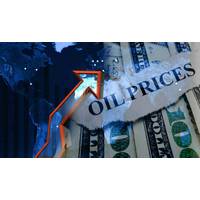Senator Levin Seeks Limits on Commodity Trading
U.S. Senator Carl Levin has introduced a bill seeking to crack down on trading on inside information in physical commodities, the first U.S. legislation limiting Wall Street banks' ability to deal in physical markets from crude oil to aluminum.
The bill, sponsored by the Michigan Democrat and co-sponsored with Republican John McCain, is seen as Levin's parting swipe at Wall Street before he retires in January. He has previously accused Goldman Sachs and other banks of manipulating physical commodity markets.
It is unlikely to make it into legislation before the Senate closes for 2014. Without Levin, the bill will also need a lead sponsor next year if it is re-introduced.
Still, the move will increase pressure on regulators to tighten oversight of certain types of commodity trading and comes as the Federal Reserve prepares new rules on banks' commodity holdings by the first quarter of 2015.
In a tweak to the Commodities Exchange Act filed on Friday and named the "Ending Insider Trading in Commodities Act," the bill clarifies the language of the "Other Manipulation" section to include reference to any "large financial institution".
The addition would make it illegal for any "large financial institution, directly or indirectly, to purchase or sell any swap, or any commodity in interstate commerce, or any contract for future delivery of any commodity, while in possession of material, nonpublic information related to the storage, shipment, or use of the commodity arising from the ownership or interest of the person in a business or facility used to store, ship, or use the commodity."
Last month, Levin, as the chairman of the powerful Permanent Subcommittee on Investigations, concluded a two-year probe that found U.S. banks had manipulated prices and gained unfair trading advantages at the expense of consumers.
In a two-day hearing, he grilled executives from Goldman, JPMorgan Chase & Co and Morgan Stanley on their ownership of physical commodities and assets from pipelines to warehouses.
Considered a crusader against Wall Street's murky behavior, he has often excoriated Wall Street executives about their business tactics, use of tax loopholes and other perceived abuses.
By Michael Flaherty






